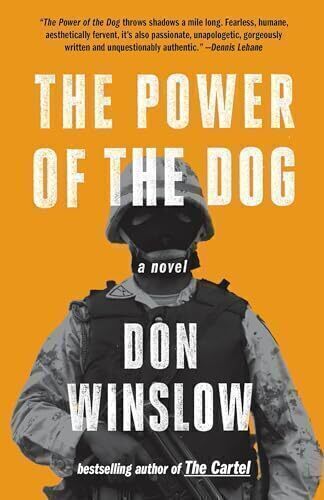
I recently watched the show Narcos, which was good, but left a lot to be desired. This book, while not without its own flaws, fills in some of those gaps. It’s a fictional story set within the real historical events of the war on drugs, the DEA, the CIA, relations between the US and Central and South America, and so on. The book does a nice job of highlighting a few key themes:
-
The war on drugs was a failure in every possible sense. It wasted hundreds of billions of dollars, it got thousands killed, and many more put in prison, and in the end, it had no impact on drug use in the US. If anything, it might’ve made the problem worse. That’s because the US declaring a war on drugs caused the price of drugs to skyrocket. This, in turn, made growing, transporting, and selling drugs a far more lucrative business opportunity, so far more people went into that trade, and the supply of drugs got far larger than it ever would have had there been no war.
-
The war on drugs was also a failure in the personal sense. The book does a great job of showing how hunting down drug lords became an obsession for some DEA agents, costing them their sanity, their families, and sometimes, their lives. And in the rare cases where they were actually able to take those drug lords down, within a matter of days, some new drug lord would take their place, and the whole thing would start over again.
-
The US obsession with fighting communism also contributed to the failure of the war on drugs. The fear of communist states popping up in Central and South American countries, so close to the US—especially Mexico, which shares several thousands of miles of border with the US—drove the US to doing deals with anyone who was willing to fight the communists, no matter how vile, including even drug cartels.
-
The book does a nice job of showing just how much the drug cartels were able to corrupt the system. They had everyone on their payroll: politicians, judges, police offers, soldiers, lawyers, and everyone else. They gave everyone a choice: plata o plomo. Work with us and get rich, or work against us and get shot.
-
I found the main protagonist of the book, Art Keller, to be a bit bland and trope-heavy, but other characters, such as Nora and Callan, were a lot more interesting. In fact, the whole relationship between Callan, O-Bop, the Italian mafia was highly entertaining.
The book does have some weaknesses. The main one is that it’s way too long. There are too many characters, too many storylines, too many tangents, and so on. Although most of the book is interesting, and some parts are hilarious or exciting, due to its length, there are also parts where I found myself bored. With a bit of editing, it could have been exceptional book. Even as it is, it’s still pretty good.
Quotes
A few good quotes from the book:
The Americans take a product that literally grows on trees and turn it into a valuable commodity. Without them, cocaine and marijuana would be like oranges, and instead of making billions smuggling it, I’d be making pennies doing stoop labor in some California field, picking it.
And you have to give the Sinaloans credit—their response to their little diaspora was pure genius. Somewhere along the line they figured out that their real product isn’t drugs, it’s the two-thousand-mile border they share with the United States, and their ability to move contraband across it. Land can be burned, crops can be poisoned, people can be displaced, but that border—that border isn’t going anywhere. A product that might be worth a few cents one inch on their side of the border is worth thousands just one inch on the other side.
They got the absolute freedom to choose what we want them to.
